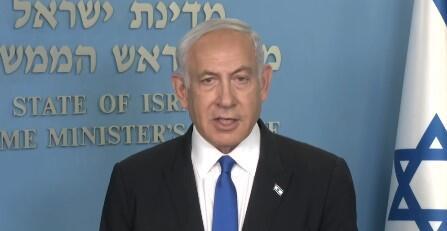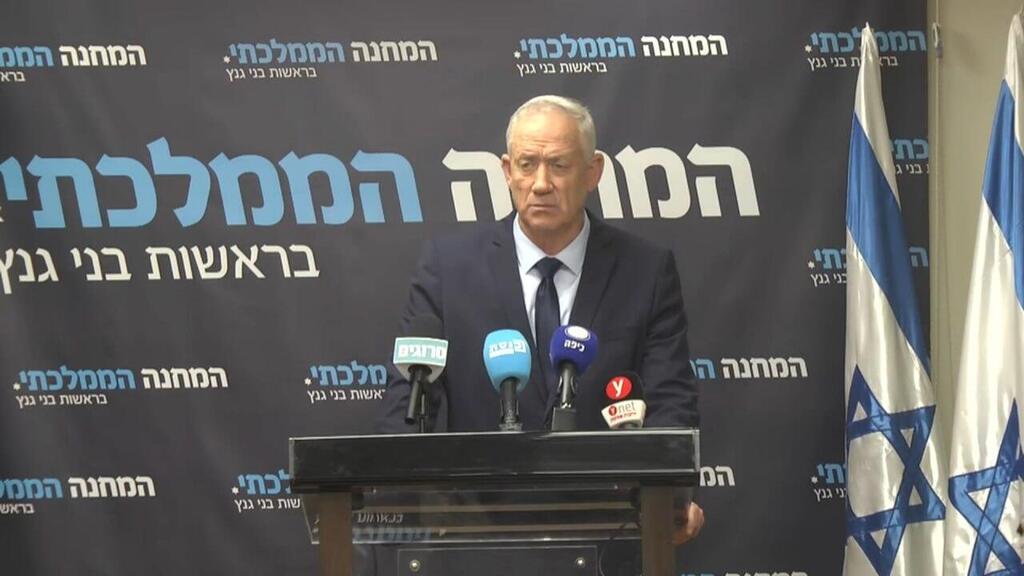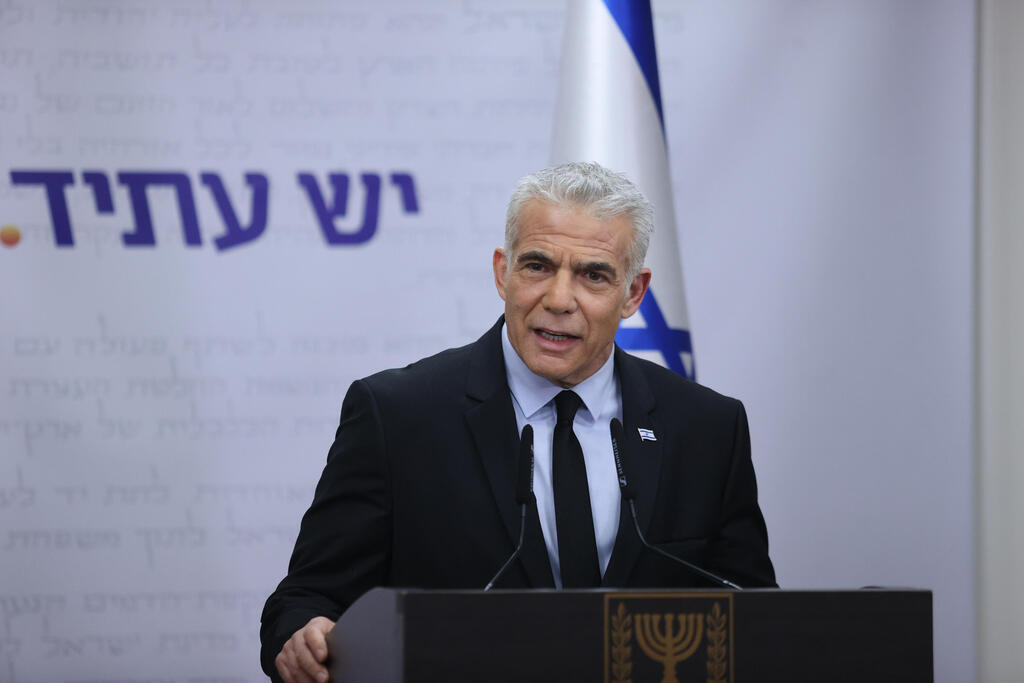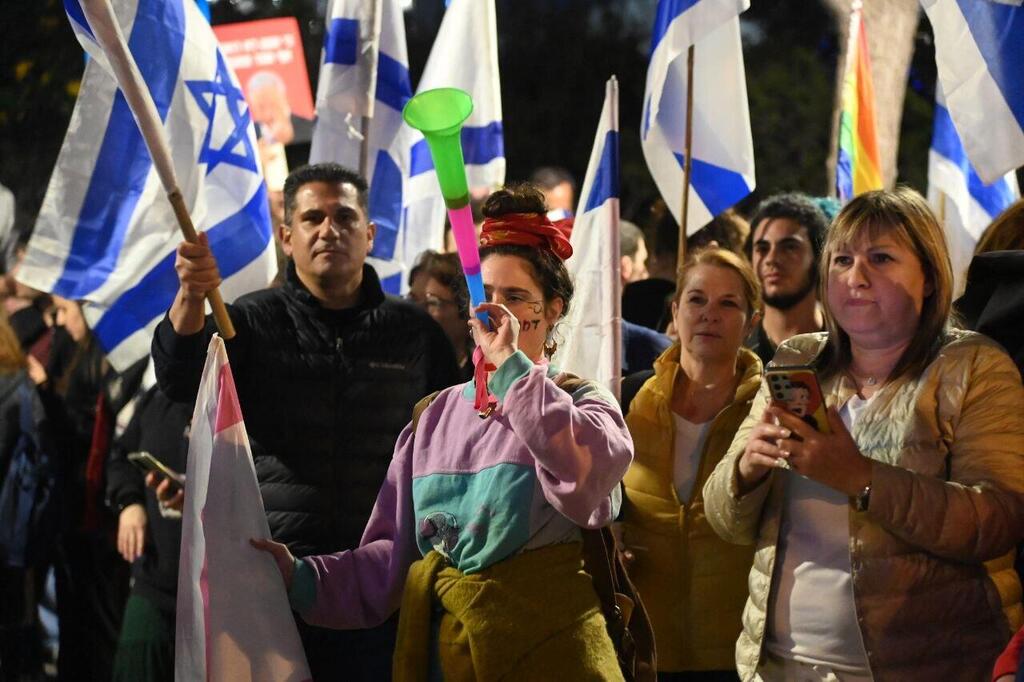Getting your Trinity Audio player ready...
Prime Minister Benjamin Netanyahu announced Monday evening that he will be postponing the final votes on his government’s push to reshape the judicial system after weeks of unprecedented mass protests that swept through the nation.
Related stories:
Netanyahu opened his statement by comparing the conflict around the legislation to the biblical story of the Judgement of Solomon in which King Solomon ruled between two women both claiming to be the mother of a child. Solomon revealed their true feelings and relationship to the child by suggesting the baby be cut in two, each woman to receive half.
"Today too, both sides in the national dispute claim love for the baby, love for our country.
I am aware of the enormous tension that is accumulating between the two parts of the nation, I am attentive to the desire of many citizens to relieve this tension. But there is one thing that I am not ready to accept - there is an extreme minority that is ready to tear our country asunder.
"It uses violence, sets fires, threatens to harm elected officials, incites civil war and calls to [refuse to serve in the army] which is a terrible crime.
6 View gallery


Pro-judicial reform protesters rally in front of the Supreme Court in Jerusalem
(Photo: Shalev Shalom)
"I am not ready to tear the nation asunder. I remember, we remember, that we are not facing enemies - we are facing brothers. And I say here and now - there cannot be a civil war. We are on the path of a dangerous collision in Israeli society, in the midst of a crisis that endangers the basic unity between us.
"When there is an opportunity for talks - I, as the prime minister, take a time out for talks. We insist on the need to bring about the necessary amendments in the judicial system, and we will give an opportunity to settle them with a broad consensus - this is a worthwhile goal like no other.
"Therefore, out of national responsibility, out of the desire to prevent a rift in the nation, I decided to suspend the second and third readings of the law in this session of the Knesset, to give time to reach the same broad agreement on the legislation during the next Knesset.
“One way or another, we will bring about a reform that will restore the balance that was lost between the authorities, while preserving and even strengthening the rights of the individual."
Shortly after Netanyahu's address to the nation, National Unity chief Benny Gantz and Yesh Atid leader Yair Lapid both gave separate statements in which they said they were open to talks.
"These are terrible days, from which we must emerge stronger and united," Gantz said at the beginning of his remarks.
"I stood here a few weeks ago and said that we might end up in a civil war and that Netanyahu will bear the responsibility. I welcome his decision to stop. Better late than never.
I intend to enter the room for talks with an open heart and a willing mind. Not with the goal of subjugation, but with the goal of success. We will immediately show up at the president's residence and extend our hand."
Opposition leader Lapid sounded skeptical about the genuineness of Netanyahu's decision to delay the legislation and called for Israel to create a constitution.
"If the legislation does stop, a real and absolute stop - we are ready to go to the president for talks. If the government comes to genuine and fair talks, we can come out of this breaking point stronger, more united and make this moment a defining moment in our common life," he said.
"The State of Israel is wounded and hurting, we don't need to put a band-aid on the wounds, but actually treat them. Heading into the 75th year of the state we must sit down together and write a constitution based on the values of the Declaration of Independence.
We must let the president establish a negotiation mechanism and trust him as a fair mediator. This is all we have demanded in the last two months: real, constructive dialogue from a leadership that is ready to take responsibility.
Lapid warned, however, that the protests will persist in full force if Netanyahu does not come to negotiate in good faith.
Meanwhile, Arnon Bar David, the head of Israel's largest labor union Histadrut, said that the union will postpone its shutdown of the Israeli economy after Netanyahu's announcement.
However, Bar David noted that if the coalition initiates another legislative push without dialogue with reform opponents, the strike will be restarted.
First published: 20:37, 03.27.23






